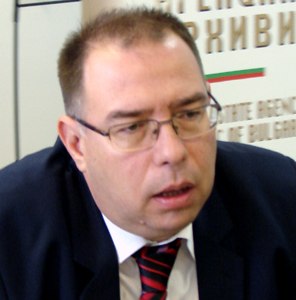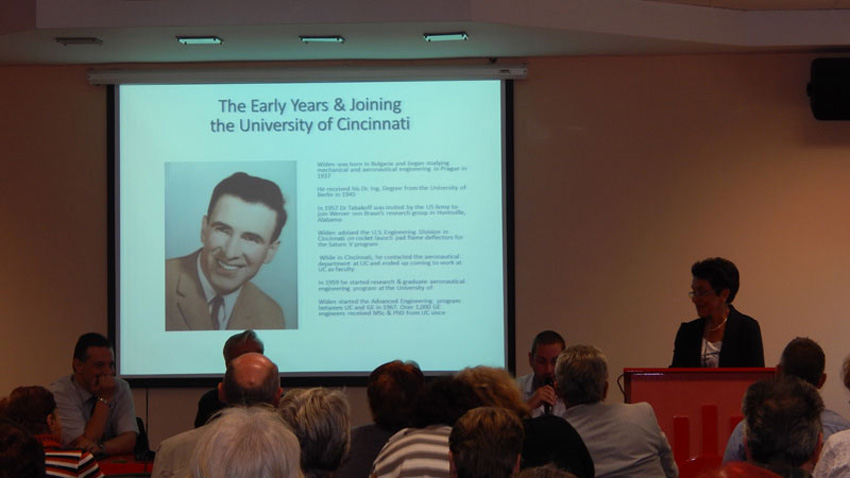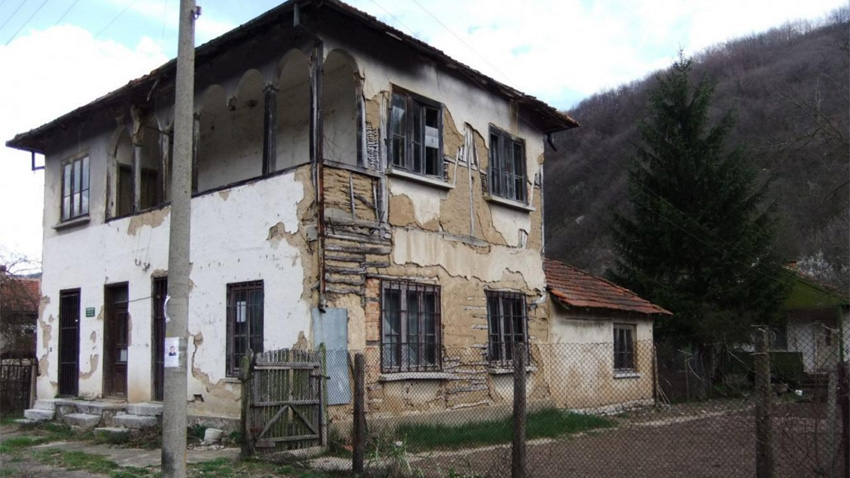The bright minds of different Bulgarians have contributed to progress of mankind across different spheres. Many of those were scattered around the globe with no right to return during communism and today we are proud of their names. But we can only imagine what the cost was of the forceful split with their motherland.
One of those bright minds was born in 1919 in a remote small village somewhere in the Northwest, but was destined to reach the stars. The Archives State Agency has recently received personal documents of Bulgarian Prof. Viden Tabakov, who participated in the US space program that sent the first human to outer space.
 “Prof. Viden Tabakov was born in the village of Stakevtsi, Belogradchik region, but then he studied engineering in Prague, rapidly making his way through the engineering team of the Third Reich,” says Chair of Archives Mikhail Gruev. “In 1945 he graduated aircraft construction and defended his PhD in engineering in Berlin. He was then noticed by head of the Reich’s missile program Wernher von Braun. After the surrender of Germany Viden Tabakov emigrated to Argentina. The USA opted at this time for cooperation with ex-Nazi experts who could assist them through the Cold War coming. Thus they reached von Braun who remembered his former colleague and invited him to join the Apollo space project. Viden Tabakov began to work for the Americans and made friends with Neil Armstrong – the man who first stepped on the Moon in 1969. Then he became a scientific supervisor to the astronaut at the Space Exploration Institute in Cincinnati, where he worked and lived till the end of his life. Prof. Viden Tabakov died in 2015.”
“Prof. Viden Tabakov was born in the village of Stakevtsi, Belogradchik region, but then he studied engineering in Prague, rapidly making his way through the engineering team of the Third Reich,” says Chair of Archives Mikhail Gruev. “In 1945 he graduated aircraft construction and defended his PhD in engineering in Berlin. He was then noticed by head of the Reich’s missile program Wernher von Braun. After the surrender of Germany Viden Tabakov emigrated to Argentina. The USA opted at this time for cooperation with ex-Nazi experts who could assist them through the Cold War coming. Thus they reached von Braun who remembered his former colleague and invited him to join the Apollo space project. Viden Tabakov began to work for the Americans and made friends with Neil Armstrong – the man who first stepped on the Moon in 1969. Then he became a scientific supervisor to the astronaut at the Space Exploration Institute in Cincinnati, where he worked and lived till the end of his life. Prof. Viden Tabakov died in 2015.”
The challenge that he faced during the Apollo project was related to high atmosphere temperatures. Those could blast the rockets, but the Bulgarian scientist found a solution by inventing metallurgical coating for the rocket’s turbine blades. So, Apollo 11 was able to land on the Moon.
According to Prof. Awatef Hamed, head of the University Lab in Cincinnati, established by Prof. Tabakov, the late Bulgarian had achievements in different areas – energy studies, aircraft engineering, lots of aviation technologies. “He had his contribution on land, in the air and on water. Aircraft engines were wanted in the air, the diesel ones were wanted for the ships at sea. Prof. Tabakov made engines safer, faster, cheaper, environment friendly and fuel-saving.”

Few foreigners have become honorary professors of NASA – but Viden Tabakov got this recognition in 2012. However, when he returned to Bulgaria after the end of communism, the academic circles didn’t hail him, ignored him and never invited him to a public event. At the same time the professor opened his soul for his birthplace. Then, during his final days and in the fight with Alzheimer he would utter words of remembrance for these spots. We will remember his painful confession before his county mate Prof. Borislav Toshev: “It wasn’t possible for me to return to Bulgaria after the war. They would have sent me to a labor camp and perhaps in a few years I would have become the chief engineer of the people’s agricultural farm in Stakevtsi. However, I would have never received a better job in Belogradchik…”

The archive of a remarkable Bulgarian is now in Bulgaria, but no scientist has shown interest yet, Mikhail Gruev goes on to say. The house where the professor was born is now in ruins. And since the state neglects the memory of its geniuses, a citizen has taken over to turn his home into a museum. “Prof. Tabakov carried with him things from his childhood years in Germany and Argentina and I hope those will come back to Bulgaria,” Boyan Minkov says.
English version: Zhivko Stanchev
"The place in France where we draw together the future of our children in Bulgarian" - this is how Yaneta Dimitrova described her workplace - the Bulgarian Sunday School "Ivan Vazov" in Paris a year ago in a post on a social network. It is one of the 396..
21 February is International Mother Language Day, first proclaimed as such by UNESCO and later adopted by the UN General Assembly. The right to study and to speak one’s mother tongue, or native language, is a basic human right and a civil right..
152 years after the death of the Apostle of Freedom, the personality of Vasil Levski continues to excite Bulgarians, regardless of whether they are in the country or abroad. The Embassy of Bulgaria in Athens, Greece , has extended an invitation to the..
The festive service for the consecration of the new Bulgarian Orthodox church in London is led by His Holiness Daniil , Patriarch of Bulgaria, who also..
The Martenitsa Festival was held in Brussels f or the third consecutive year . Cultural organizations from Bulgaria, Romania and Moldova presented their..
Measurement equipment installed at the Bulgarian Antarctic base "St. Kliment Ohridski" has been collecting valuable data on solar activity and its..

+359 2 9336 661
